
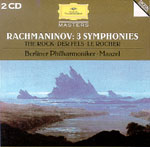
These performances were recorded in the early 1980s when the Berlin Philharmonic was still very much Herbert von Karajan’s orchestra (though their relationship had begun
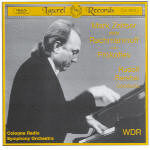
A technical question: Since Herschel Burke Gilbert produced these sessions recorded by West German Radio in association with American Digital, wouldn’t it stand to reason
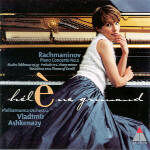
Save for the Corelli Variations, Hélène Grimaud previously recorded these Rachmaninov works for Denon. Her remake of the Second Concerto largely improves on her 1994

Smooth, relatively uninflected, and suavely modulated pianism characterizes Nikolai Lugansky’s interpretations of Rachmaninov’s Op. 23 Preludes, Op. 16 Moments Musicaux, and the ubiquitous C-sharp minor
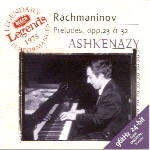
Decca Legends squeezes all 80 minutes and 34 seconds of Vladimir Ashkenazy’s 1975 Rachmaninov Preludes onto a single disc, in its cleanest and clearest transfer
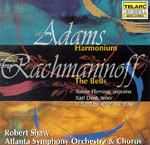
Robert Shaw’s reading of Harmonium is quite lush, luxuriating in the score’s shimmering harmonic contours. Full-bodied, sonorous singing from the Atlanta Symphony Chorus illuminates Adams’
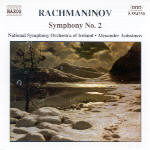
Ireland’s National Symphony Orchestra has turned out to be quite a find for Naxos, providing consistently fine performances of Tchaikovsky, Mahler, Bruckner, and now Rachmaninov.

Rachmaninov himself made an arrangement of his Olympian Piano Concerto No. 3, which he played with Vladimir Horowitz (Horowitz took the solo part). During his
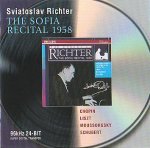
Taped in Sofia, Bulgaria, in February 1958, this recital by Sviatoslav Richter has long been a discographic legend. Having been tremendously impressed by new digital

Jésus López-Cobos’ Rachmaninov Second gets off to a less than promising start. Despite the beautifully resonant tone from Cincinnati’s low strings, the music suffers from
![]()
